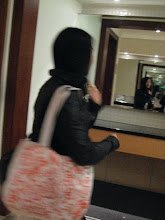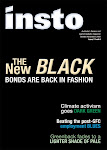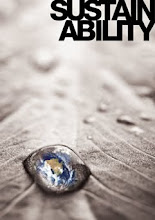The Pep Talk - Part 1
 I met him outside a train station on a Friday night. Almost a year had passed since our last run-in, outside uni production suites, in between ABC and SBS cadetship applications. A brief hug and an exchange of knowing smiles proved that the bonds of Journalism school remained intact.
I met him outside a train station on a Friday night. Almost a year had passed since our last run-in, outside uni production suites, in between ABC and SBS cadetship applications. A brief hug and an exchange of knowing smiles proved that the bonds of Journalism school remained intact. "Where to, coffee or a[n alcoholic] drink?" he asked.
"Up to you," I said, instinctively accommodating.
He cocked his head to the side, treading the waters of my unusually courteous behaviour with some trepidation: "Coffee then?" he suggested.
He was right to hesitate. It's Friday.The sudden realisation somersaulted it's way through my oesophagus, landing in my stomach with a dull thud.
"We're journalists now. We need to drink," I said, firmly steering his elbow around the shiny puddles that littered the busy road before us, and into the comfort of the nearest pub.
Over a few G+Ts we exchanged war stories of our first 'journalism' gigs, both now fully fledged members of the Business-to-Business industry, both trying to justify our roles at our respective companies by referring to ourselves and each other as if we belonged to some strange breed of that elusive creature we call 'journalism'.
Y'see, we both graduated under the flawed if not false impression that unless we were employed at a prominent media organisation (which, given the small size of the Australian media industry reduces the pool of potential employers to the Sydney Morning Herald, the Australian, the ABC and SBS), or were at the very least reporting news every day, we could not consider ourselves real journalists, regardless of how much we'd like to.
As the night wore on, the conversation gave way to bitching and moaning about how hard it all was. We had known it would be 'hard' but not 'this hard' to find our dream jobs. (This, just shy of three months out of university.) At one point, my friend drew his line in the sand, "I'm applying for ABC and SBS again this year. And if it doesn't work out, I'll start thinking about jobs in DFAT (the Department of Foreign Affairs and Trade)."
It could just have been the two G+Ts, or perhaps the Cadillac Cosmopolitan- which, by the way, you should ALL try. It has a raw egg in it and EVERYTHING...very fancy - but I was truly stunned at this revelation. He may as well have told me that yes, he, Darth Vader, was indeed my father after all.
For, to me, to go from Journalist to Politician Spin Doctor would be crossing over to the Dark Side. It's not that journalists and politicians are necessarily opposed to one another (although that is debatable, feel free to challenge this in the comments below) but I would've thought at least part of the appeal of the former profession was the ability to "keep the bastards honest" (ironically) in blunt terms, or rather to be the Fourth Estate.
And more than that, to study a particular discipline for years, and presumably, to follow the careers of journalists you aspire to become more like for many more years, seems like too big a commitment to throw away after one year in the school of not-so-hard knocks.
He assured me that DFAT was his last resort but reasoned that there was only so much one could take in this quasi-journalistic environment. One example he gave was this: one of his stories had, though later nominated for an award, been removed from its website a day after he had posted it because it conflicted with a number of key advertising sponsors. Despite the fact that anything that takes up Internet space for a day can potentially reach millions more than news printed in a trade magazine ever could, It begs the zen-like question:
If a groundbreaking news story has no audience, is it still news?
Over to you, dear readers.
Tune in for the actual pep talk next post.
--
*Update*
This question turns the overused (and kind of absurd) argument - 'kids these days' have it easy when it comes to the media industry because we can 'publish ourselves' on the Internet in one fell click - on its head. Zillions of hits do not maketh Perez Hilton a 'celebrity journalist'. But the blogger vs. citizen journalist debate would not even exist without the huge readership that website attracts on a daily basis. Does a journalist's value therefore turn on the size of its audience?
[Photo: http://3.bp.blogspot.com/]








